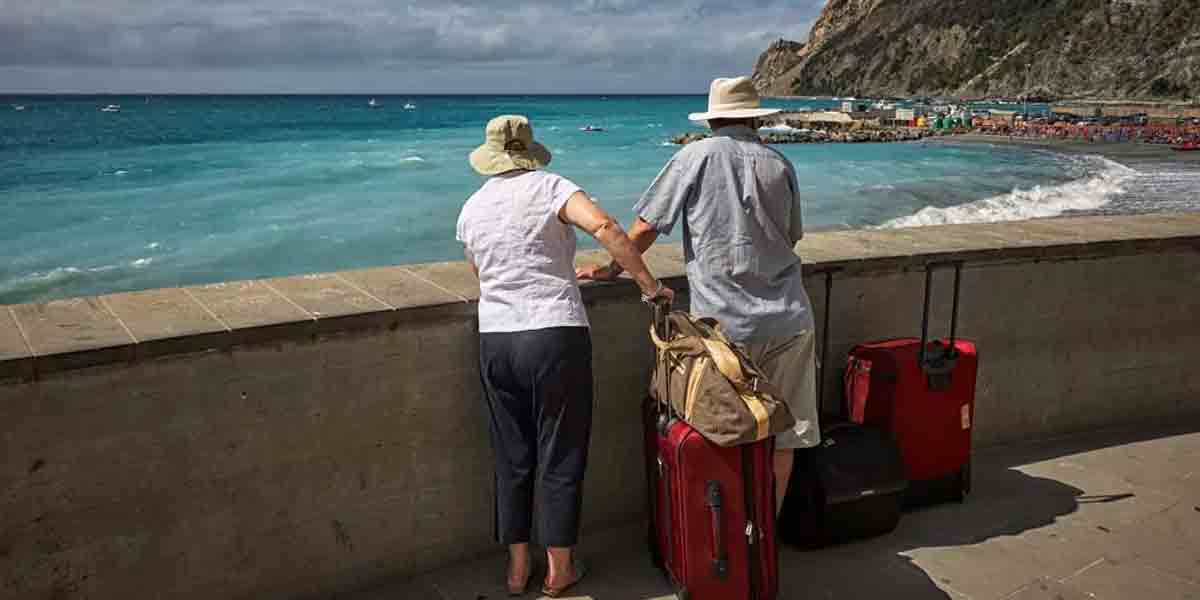By Romyleen B. Mitra
In the heart of working-class communities across America, particularly among Filipino-Americans in Los Angeles and beyond, an overwhelming sense of chaos has become the daily backdrop for families striving to secure their financial futures.
For many, the stability of their lives once hinged on reliable foundations—steady jobs, savings accounts, and the reassuring promise of 401(k)s or pension plans.
Yet, today’s financial landscape resembles a relentless roller coaster, where the stock market’s wild fluctuations provoke waves of anxiety among those who live paycheck to paycheck.
As reports of record-high inflation and rising costs of living flood the news, a growing number of working-class families find themselves grappling with the stark reality that their retirement savings are being eroded in real time. The chaos stems not only from fluctuating markets but also from the looming uncertainty of tariffs and economic policy decisions that seem to shake the very foundation of their hopes for the future.
Now, let’s talk about tariffs. For the uninitiated, think of tariffs as a sneaky surcharge on goods coming into the country—like the unexpected addition of a hidden ingredient in your favorite batchoy.
You know that delicious Ilonggo noodle soup that warms the soul? Now imagine you’re at your local eatery, and suddenly the chef announces: “Hey, folks! Due to new tariffs, I’m adding an extra peso for every piece of chicharron!”
Suddenly, the comforting bowl of soup that used to be affordable feels a little more like a luxury item. That’s precisely what happens to goods when tariffs kick in—prices rise, and your financial comfort goes down the drain faster than the broth on a rainy day.
These tariffs impact much more than just food, too.
Think about it: how many times have families gone shopping for school supplies, only to find that the cost of pencils, paper, and backpacks are creeping up because of these same tariffs?
It’s like buying one batchoy only to discover that all the accompaniments—side dishes, the tasty sauce, and even the takeout container—come with extra fees.
Suddenly, what used to be a simple outing to prepare for the school year turns into a budgeting nightmare. The irony?
While tariffs are supposedly aimed at protecting local industries, it often feels like they’re just serving up a hefty bill for the everyday struggles of working-class families, at the whims of some senile old, spoiled brat in a suit who thinks they understand our lives.
Americans are not just worried about the numbers on their retirement statements; they are caught in a web of uncertainty, their plans increasingly dependent on the whims of a turbulent stock market.
Will they be able to retire comfortably? Will they need to work longer than planned?
These questions linger in the back of their minds, casting a shadow over their everyday lives.
Personally, I feel a deep sense of anger and frustration bubbling beneath the surface.
Despite my efforts to voice my concerns through voting, believing that I was participating in a democratic process for change, I now grapple with a disheartening truth. I look at the elected officials who were supposed to advocate for us, and I’m left questioning their very effectiveness. Are they truly listening?
Or are they merely echoing the sentiments of those who line their pockets rather than the constituents who depend on them? What’s wrong in this equation?
As the author and activist, Howard Zinn, once said, “The most effective way to do it is to do it.” Yet here I am, feeling paralyzed by a system that seems to disregard those very voices it promises to represent. It’s a frustrating dichotomy: a belief in civic engagement clashing with the painful reality of being unheard.
That feeling of helplessness seeps into every conversation I have, weighing heavily on my heart as I navigate a world that feels increasingly unfair.
Saarbrücken and German Hikers
Amidst the chaos that permeates America, I found myself in Saarbrücken, Germany, where I experienced an unexpected contrast to the frustrations I had been feeling back home. There, in the serene landscapes of the Saarland region, I encountered a group of seasoned hikers—a minimum age of 65 to 75—who welcomed me into their fold with warmth and camaraderie.
Among them was my hiking buddy, Harald Michel, whom I met while hiking the breathtaking villages of Cinque Terre in Liguria, Italy, back in 2019. Despite the disruptions of the COVID-19 pandemic, we’ve maintained our friendship, sharing stories and laughter across the miles.
As we discovered, we share the same birthday—June 20—which only deepened our bond. At 70 years old, Harald is a retired plumber who now lives life as a jack of all trades.
His days are filled with tending to gardens, repairing clogged pipes, and embarking on invigorating hikes.
What truly sets him apart, though, is his unwavering zest for life. Harald is not just surviving; he thrives on a simple but nourishing diet of basmati rice, fresh fish, and hearty bread. He lives alone in a cozy three-bedroom apartment, and despite his age, he is as healthy as an ox, regularly hitting the trails and even dating lovely women as he embraces his golden years.
Each time we paused to catch our breath, I was struck by a curious sight: many of these elderly Germans would light up a cigarette, taking pleasure in the ritual even amidst strenuous hikes. It defied my expectations, as I couldn’t help but ponder the health implications of smoking at such an age.
Yet, as I observed them, they seemed vibrant, energized, and genuinely joyful, embodying a sense of contentment that felt almost alien amidst my chaotic thoughts about work and finances back home.
After one particularly invigorating hike, my group decided to take a break at a small café nearby, where Inga served us the most amazing cakes and coffee, all made with organic ingredients harvested right from her backyard. A huge piece set us back only €2.00. It was a delightful reminder that even in difficult situations, great solutions exist—like enjoying simple pleasures that don’t break the bank. Who knew that delighting in a slice of homemade cake could momentarily ease the weight of the world?
This experience made me reflect on how different cultural attitudes towards life can profoundly affect one’s sense of well-being. While I was grappling with fears about economic instability, I found Harald and the other hikers celebrating life in their own way, even if it involved a vice that many would deem counterintuitive to health. They appeared at ease, focused on enjoying the moment rather than burdened by the weight of financial market turmoil.
During our breaks, I engaged in conversations with them, sharing stories of life in the U.S. They spoke about their experiences, recalling how, after a rigorous hike, it was customary to relax with a cigarette and a laugh—a stark contrast to the high-stress lifestyle I encountered back home. “In the end, we all face struggles, but it’s how we choose to live with them that matters,” one woman shared, her eyes shining with wisdom that transcended generations.
Finding Joy Amidst Chaos
As I stood there, surrounded by joyful souls who embraced each day with a sense of gratitude, I couldn’t help but wonder what lessons we could take from this experience.
Perhaps it’s about finding balance—prioritizing connection and joy, and being more mindful of our own actions, rather than being dictated by the need for validation from others.
What if we focused on what we have in front of us—cherishing simple pleasures and the beauty of everyday moments? What if, despite concerns over tariffs and stock market chaos, we dedicated ourselves to uplifting community bonds and savoring the richness of our lives? By embracing a mindset of gratitude and self-awareness, we might find solace and strength amid adversity while advocating for the systemic changes we desperately need.
Bridging Cultures in Times of Turmoil
Returning to my home in Los Angeles, the memories of those hikes and conversations linger in my mind. The chaotic reality faced by the regular working-class people, the financial instability, the frustrations with elected leaders—will not disappear overnight.
But perhaps, as we navigate these turbulent waters, we also need to remember the lessons learned from different cultures. It’s about embracing life, finding joy in small moments, and standing together to demand the change we need across borders.






















